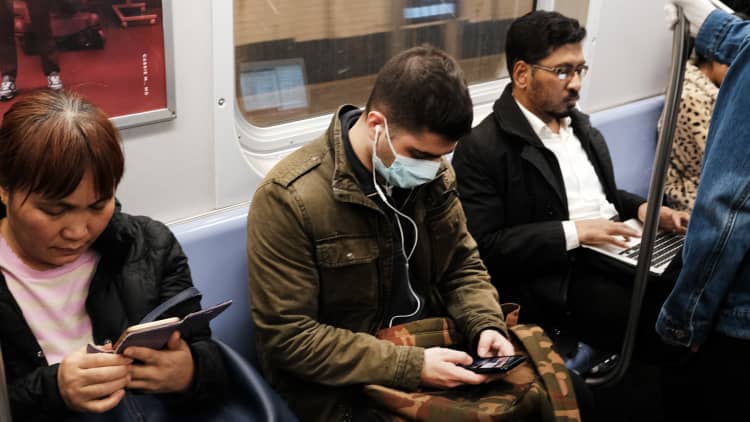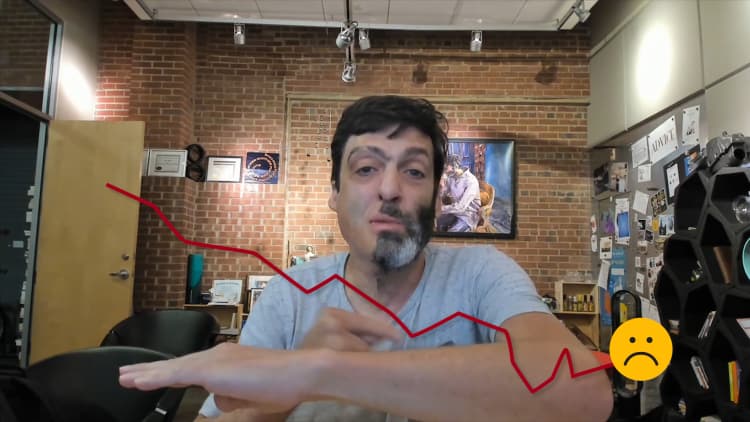
New York Mayor Bill de Blasio declared a state of emergency in the city on Thursday, saying the coronavirus outbreak "could easily be a six-month crisis."
Large venues such as Barclays Center and Madison Square Garden will likely be closed for months as officials try to contain the fast-spreading virus, he said.
"The last 24 hours have been very, very sobering," de Blasio said at a press conference. "Yesterday morning seems like a long time ago. We got a lot of information in the course of a day yesterday and a lot changed then, then last night it just seemed the world turned upside down in the course of just a few hours."
The declaration gives the city a vast range of new authority, including the power to establish curfews, shut down public transit, close public spaces, ration goods, impose price restrictions and suspend alcohol sales, he said.
The city now has 95 confirmed COVID-19 cases, with 42 of them reported in the last 24 hours, he said. More than 1,780 people are under voluntary quarantine in the city, with an additional 29 people under mandatory quarantine, he said. By next week, the number of cases in the city is projected to rise to 1,000, he said.
"I don't think for most of us who even have been in public life a long time we've seen a situation quite like this, where we receive extraordinary new information on what now feels like an hourly basis, so we're constantly making adjustments," de Blasio said.
The mayor told New Yorkers to expect "major changes" from day to day.
He said a full quarantine of the city, similar to measures taken in China to stem the outbreak there, "will degrade people's lives" and is "unrealistic."
De Blasio also said he's going to "fight tooth and nail" to keep schools open. "Kids need meals, and parents need a place for them to go," he said.
He authorized 10% of the city's workforce, 35,000 people, to work from home "in short order." Another 20% of the city's employees will be working on a staggered schedule.
Earlier in the day, New York Gov. Andrew Cuomo banned gatherings of 500 or more people across the state "for the foreseeable future."
Cuomo said the state is likely to see a spread of COVID-19 similar to that of China, South Korea and Italy, where the new coronavirus has millions of people under lockdown and has shuttered commerce.
"What makes you think that the virus in China, the virus in South Korea, the virus in Italy wasn't going to react any differently than the virus here?" he said. "You are going to see the same trajectory that you saw in China, South Korea and Italy, and it is going to happen here as the virus spreads, because of the way it is actually contagious."
Both Cuomo and de Blasio pleaded for the federal government to help. De Blasio said he was very concerned about keeping people employed. "A number of business will be cutting back or shutting down," he said.
De Blasio urged the federal government to approve automated COVID-19 testing, which would allow labs to process thousands of cases a day rather than a few hundred.
"I think this is bluntly the last chance. If the president of the United States and FDA won't give approval, I frankly don't blame any" municipality for taking matters into their own hands, de Blasio said. The steps President Donald Trump outlined last night "showed much more connection to reality" but still don't give cities and states what they need to manage the outbreak, he said.
Globally, there have been more than 127,000 confirmed cases of COVID-19 and at least 4,700 deaths as of Thursday afternoon, according to data compiled by Johns Hopkins University. There have been at least 1,300 cases and at least 38 deaths in the U.S.


